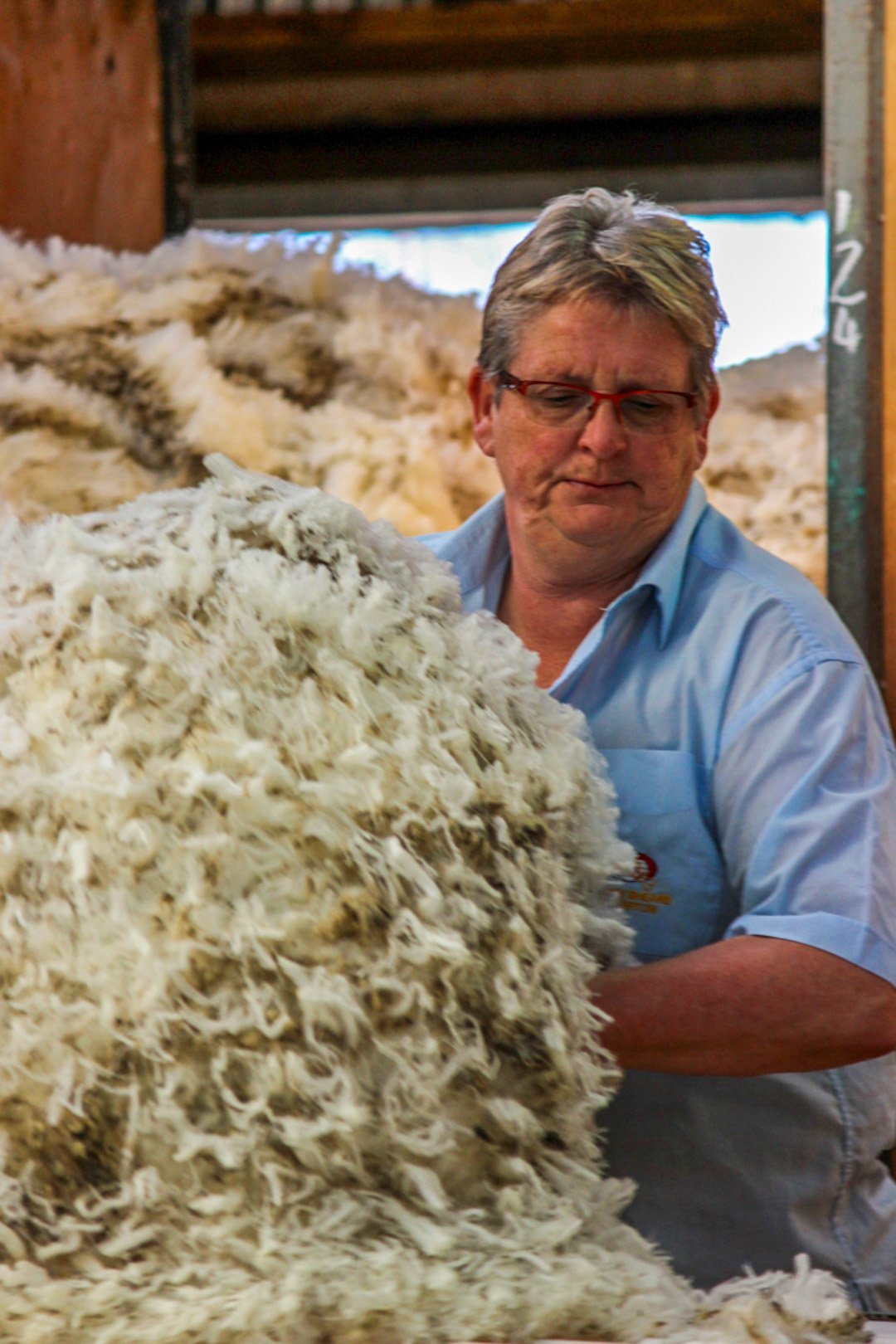
After all, the Dunedin woman was born in the Chinese year of the sheep and had an appropriate Christian name.
While not from a rural background, she embarked on a career in wool 47 years ago and it has evolved into a lifelong passion.
Since graduating in the mid-1970s with a diploma in wool and wool technology, Mrs Newton has spent the past 45 years involved in the wool harvesting industry.
Initially she was a broker classer before a career as a self-employed professional shed classer - a role from which she has recently retired.
While her classing had been based on the merino industry, her interest remained with the entire New Zealand clip.
Most of her work was centred on the Central Otago and upper Waitaki areas and she also had a five-year stint classing at Man-O-War on Waiheke Island.
Mrs Newton’s initial interest in wool began in her early teens through her mother, whose fleeces were spread out in front of the fire, from which Mrs Newton would select staples for her to card and then spin.
Both her grandmothers and her mother were keen knitters and craftswomen and there was never any shortage of woollen garments.
Her first specific job, in between two stages of study at Massey, was working at the Donald Reid wool store in Dunedin.
She was dispatched to the oddments department and "picked pieces" - taking out stain from crutchings, which did not impress her much.
So she gained her full broker classer registration and was believed to be the first woman to attain that qualification.
After completing her studies and spending a year working at the Wrightson wool store in Timaru, she returned to Dunedin to work in the Dalgety store.
After about four seasons in various wool preparation facilities, she was asked if she would be interested in classing a merino blade run in the Upper Waitaki in 1981.
She jumped at the opportunity "and pretty much never looked back".
After two seasons, Mrs Newton took a small break to have her two sons but managed to do the odd bit of classing in the ensuing years until the late 1980s when she restarted classing in earnest.
She was "indebted" to her husband, family and friends who made it possible for her to continue.
For the past 20 years, she was away from home for three to four months during the pre-lamb shearing period. As the season approached, she would be "champing at the bit, counting down the days".
She was appointed the first wool classer representative to the Wool Board Classer Registration Advisory Committee and was an inaugural member of the NZ Wool Classers Association Inc.
She has judged wool at shearing and woolhandling competitions and, for the past 15 years or so, has been an active committee member of the Otago Merino Association. She started a photography competition which saw images shared around the world.
Mrs Newton witnessed many changes in the wool harvesting industry, including switching from classing the majority of clips in the store to shed classing, the introduction of objective measurement, selling options, the integration of females, the improvement in the standard of preparation in sheds, the professionalism and competency now shown by many shed staff and employers, and the rise in skill level, particularly wool handlers.
The most disconcerting change in classing had been the demise of educational opportunities. She was also extremely saddened by the discontinuation of the Dunedin wool auctions.
From a "townie background", she came into classing having never worked as a woolhandler but she was proud to have worked alongside the world’s best.
She was "truly indebted" to work with and establish a lengthy friendship with champion woolhandler, the late Joanne Kumeroa, who taught her the "way of the sheds".
Mrs Newton had always loved the smell of the shed, the camaraderie, physicality and working under pressure as well as learning a wide range of other skills.
The classer stood at the "coal face" of the wool harvesting and fibre production chain, providing the vital link that ensured preparation was always done to the best possible standard.
It was a big role, especially during the "micron madness" days when every 10th of a micron under 18 micron was worth $10.
It had been a privilege to work with the farming families that she had - particularly the Graham and Hore families, with whom she had a long association.
While she would miss classing, she was looking forward to a trip to Namibia in August and it was also time to "give someone else a go".
Being a "little cog in the wheel" that brought New Zealand’s merino industry to the forefront of the world was something she was proud of.
She had no regrets about her chosen career and she was grateful for the support of her parents at a time when there were not a lot of career choices for women.
While she had initially wanted to be a scientist, she quipped she was now sometimes a psychologist, marriage counsellor and social worker.
Mrs Newton said she would miss the people, but she would maintain both friendships and a close interest in the industry.
"It hasn’t ended just because I’ve stopped classing."















